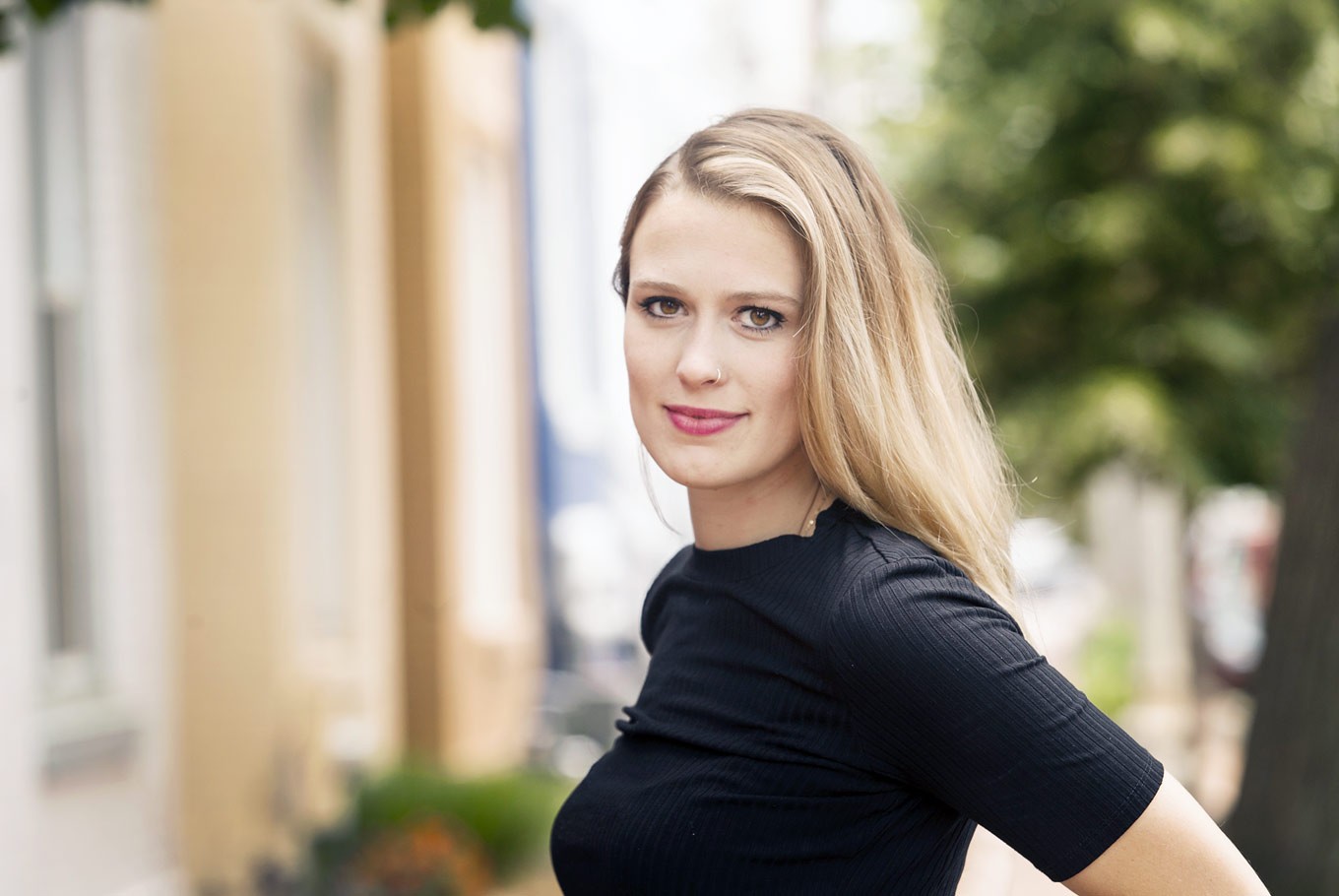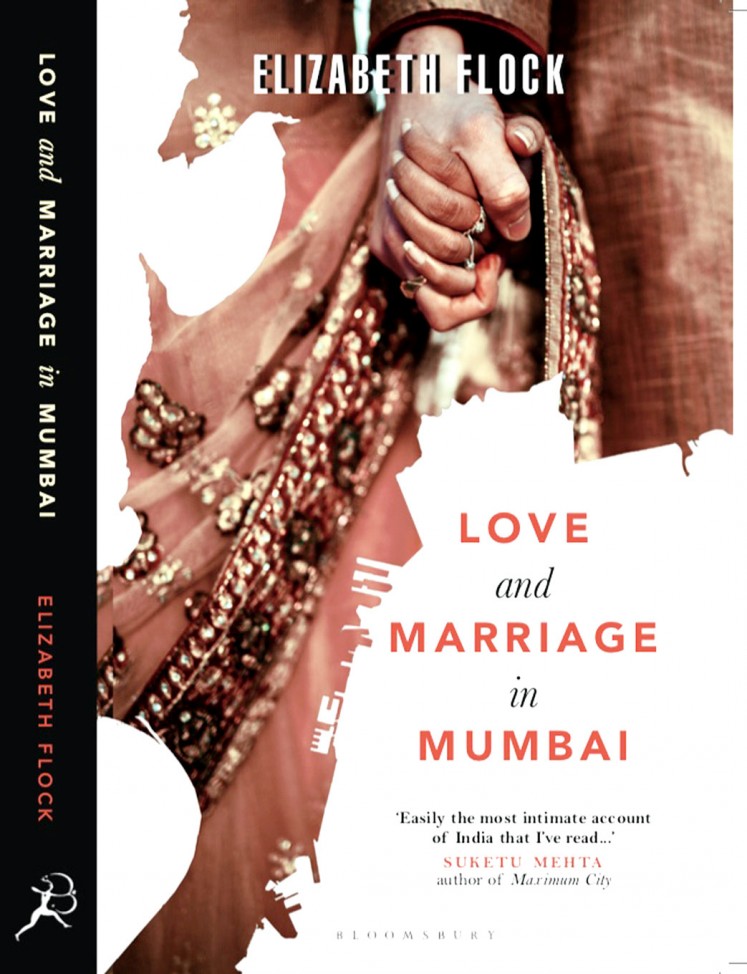Popular Reads
Top Results
Can't find what you're looking for?
View all search resultsPopular Reads
Top Results
Can't find what you're looking for?
View all search resultsMarriages in India: The changing dynamics
American journalist Elizabeth Flock’s first book, Love and Marriage in Mumbai, is a powerful nonfiction narrative on three marriages in a modern India that is undergoing massive social change.
Change text size
Gift Premium Articles
to Anyone
I
n Indian culture, arranged marriages are widely accepted and considered the norm. However, the very concept of having an arranged marriage has intrigued many.
This norm also caught the attention of Elizabeth Flock, who came to Mumbai from Chicago, Illinois, way back in 2008, when she was only 22 years old.
“In Mumbai, people seemed to practice a showy, imaginative kind of love, with an eye toward spectacle. Relationships were often characterized by devotion, even obsession, especially if two people could not be together. This kind of love played out on the movie screens, but it was also deep in the bones of India’s stories, in the Hindu scriptures and the Bhakti and Sufi devotional poems,” she observes in her book Love and Marriage in Mumbai.
Being young, naive and from a different culture, Flock writes, she was drawn to the drama.
Besides, when Flock first visited Mumbai, it was after her father’s third divorce. She was looking for answers and wondered if failure of marriages in her country or elsewhere was due to the missing “devotional quality” in relationships that seemed so much a part of love in India.
Thus, Flock embarked on a journey in search for answers about why marriages succeeded or failed in the US or anywhere, although she says that it wasn’t really a “conscious effort”.
“In the beginning of my time in Mumbai I stayed with a number of married couples, and that’s when I started asking questions about their marriages. I wanted to learn about their relationships, how they fell in love and how they married. I wanted to learn about this place I’d just moved to through their love stories,” she recalls.
Flock eventually became so involved in her quest for answers that her research on romance and marriage in urban India led to a phenomenal feat of reportage. “Everything reported in the book is true, but it reads more like a novel,” she says of her book that is all set for release in India on June 18.
Interestingly, Flock had come to Mumbai to pursue a career in Bollywood! “I was introduced to foreign films by my mom when I was really small,” she recalls.
She flew down to Mumbai with just about a US$100. However, Bollywood was not her destiny and soon she ditched that dream and bagged herself a job with Forbes India as a reporter. “I think I always wanted to be a journalist but didn’t know it,” states Flock who is presently a reporter for PBS NewsHour and lives in Washington, DC.
On her first visit to Mumbai, Flock read Suketu Mehta’s Maximum City, which gave her good insight about the megacity. “Mumbai is a place of contradictions. I think what I learned very early on is how incredibly diverse Mumbai and India are; in every sense of the word. You can’t generalize about anything,” she explains.
On that note, Flock, whose book is based on three middle-class couples in Mumbai, says, “They are not representative of love or marriage in India, or even of love and marriage for the middle class in Mumbai. They are three very specific stories. And there are millions more.”
The three middle-class couples Flock chose are unique in their own way. They belong to different religions, culture, caste and educational backgrounds. One couple eloped against their parents’ wishes to get married, one couple had a very traditional arranged marriage; and the third couple’s marriage was a bit of a hybrid, because they chose each other with the help of their families and an online matrimonial site.
Flock spent a decade getting to know the couples, their intimate stories, confessions and well-kept secrets and hence was able to effectively and honestly tell their love stories.
Love and Marriage in Mumbai by Elizabeth Flock (Bloomsbury/File)Her book makes interesting revelations about relationships and marriages in a country that is undergoing a transition due to the clash of Western culture with traditional values.
Extensive research brought to light some stark realities about the changing dynamics of marriages in modern India. Some of the first data she looked at was from the book Love Will Follow: Why the Indian Marriage is Burning, a study of Indian marriage today by an Indian psychologist, Shaifali Sandhya.
Stats from the book said that divorces were increasing and the vast majority were initiated by women. Another said that 94 percent of Indian couples were happy in their marriages but would not marry the same person if they had to do it over. “Both of these stats surprised me, and I wanted to dig deeper,” says the author.
For the book, Flock’s influences were journalists Katherine Boo, who wrote Behind the Beautiful Forevers, and Adrian Nicole LeBlanc, who wrote Random Family. “Both books are examples of immersive, narrative nonfiction, reported over a long period of time and written more like a novel than like typical nonfiction. I took lessons from both authors in how they wrote about communities that were not their own, and how they did so with sensitivity, empathy, and accuracy,” she says.
Regarding the pressure on the Indian marriages, the author says that even though she only studied three couples among millions, “but from my vantage point, the institution of marriage seems to be under tremendous pressure in India right now.”
Research also suggests that more people are rejecting arranged marriages. More people are getting divorced. Also, according to some surveys, more people are also seeking extramarital affairs, and many of these people are women. “All in all, it’s a confusing and uncertain time for the institution,” she feels.
Another significant observation made by Flock about the Indian married couples was that couples were not in step with each other – at least in the couples she followed. “I found a disconnect between husbands and wives. People with views literally from different generations are getting married and have to coexist,” she observes.
Incidentally, from the very beginning of her journalistic career, Flock has been interested in social issues and as she says, “in particular on women’s issues, and how societies and cultures are changing for women.”
In that context, she points out that it is the women who continue to make compromises in the marriage. “In many ways, India remains a deeply patriarchal society. It is still the women whose careers and ambitions came second.”
But, all is not lost. The new challenges are opening up new trends in the way marriages are now taking place in modern India. They seem to be practical solutions.
“New ways of marrying are emerging, such as the hybrid half-love, half-arranged marriage, in which both parents and children play a role in picking a partner. In the couples I met that kind of marriage had the most success,” concludes Flock.












